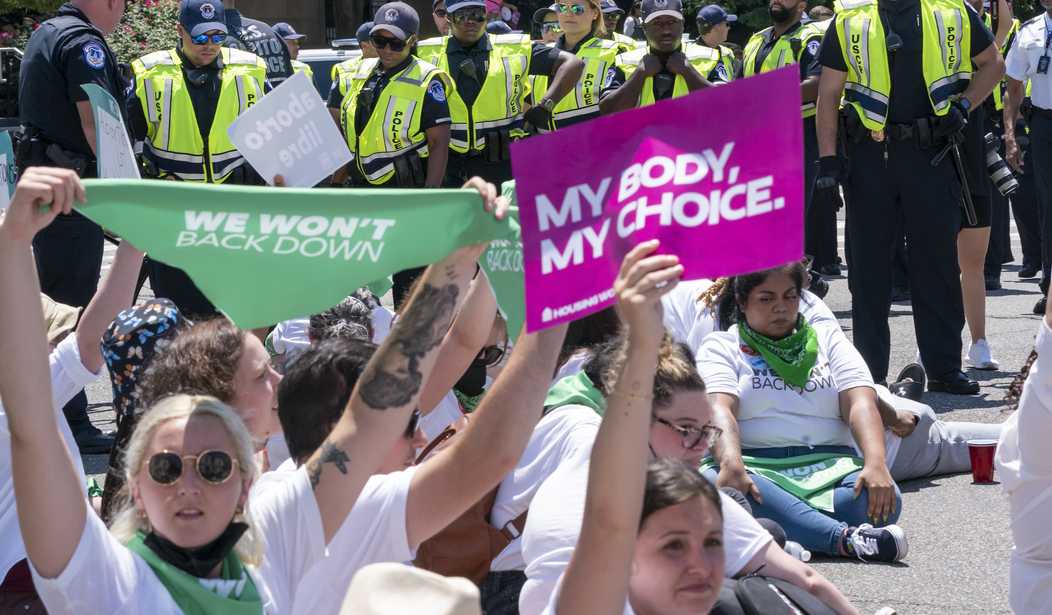New data suggests that there is an increasing connection between party affiliation and sex.
As first reported by the Washington Examiner, more and more women are identifying as left-leaning, meanwhile, men seem to be drifting right:
About 44% of women ages 18-29 identified as liberal in 2021 compared to just 25% of men, according to Gallup poll data . Those numbers show a sharp increase for women over the last four years. Only 35% of women identified as liberal-leaning in 2018.
Young men have remained somewhat steady over the last few years, experiencing a gradual decline in the number of men who identified as liberal from 2016 to 2019, according to the data. However, that number experienced a spike in 2020 when about 27% identified as liberal-leaning, falling again to 25% in 2021.
The 19-point difference between men and women who identify as liberal is the largest polling gap the survey has found since it began tracking the issue in 1998, according to the data.
This is probably not too surprising given today’s political atmosphere. Women are more likely to trend left thanks to issues like abortion becoming a hot topic in today’s society. The collapse of Roe v. Wade was viewed as a tragedy by mainstream America and women seeing abortion as a critical issue (61 percent of women consider it a top issue) was destined to drive women leftward.
Another interesting aspect was highlighted by Daniel Cox, who noted that abortion becomes a much larger issue for unmarried women, and that number has been steadily increasing over the years. Today, only 15 percent of young women are married. This number was much larger just two decades ago with one-third of young women being in married relationships.
Cox brings up research that shows unmarried women tend to sympathize more with other unmarried women than married women tend to, giving them more of a connection and generating more sympathy. According to the research, this is known as “linked fate” and it’s far more common among women than it is among men:
In their fascinating 2017 study, Christopher T. Stout, Kelsy Kretschmer, and Leah Ruppanner argue that “women consistently earn less money and hold less power, which fosters women’s economic dependency on men. Thus, it is within married women’s interests to support policies and politicians who protect their husbands and improve their status.” This phenomenon of “linked fate” was not found to be evident among men, so even though young men are also less likely to be married compared to older generations, their marital status may have less of an impact on their politics than for women.
With many other societal changes such as higher education levels for women, the reduction of religious importance in one’s life, and the destigmatization of promiscuous sex, women moving to support a party that allows them to live more comfortably outside of a relationship with a man is bound to happen.















Join the conversation as a VIP Member